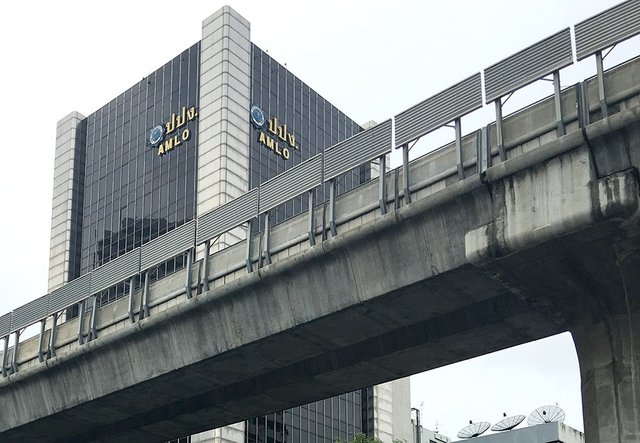
The anti-money laundering authority from Thailand is currently working on launching a new wallet. In doing so, the government wants to have its own digital wallet to keep Bitcoin and other cryptocurrencies related to crime safe.
The Thai crypto police is again increasingly on patrol. It is relatively regulated in the area of the authority compared to other crypto areas. The regulated climate was already rising there when distant neighbors still fiercely swung their regulatory legs. It was Thailand, the regulation of tokens considered when they were completely banned in China about (or is at least trying). This should take some time. Even in January, the former Finance Minister said that regulation was urgently needed . In July 2018 came then tender advances. So the government began to issue its own law for cryptocurrenciesInstead of subjecting them to the protracted process, it is difficult to place them under existing laws.
This ultimately resulted in the Thai SEC granting seven permits in August for companies that allow cryptocurrency trading. With a circular letter to the financial institutions , Thailand tasted the regulatory soup then tasty: Financial institutions should henceforth have the green light for investments in the crypto sector. The relatively regulated situation also made it possible for the country in Asia to issue its own cryptocurrency .
It turns out that the situation in the country is more or less progressive. The legal framework is given, but not too relaxed. The government has established clear guidelines on what should and can not happen. It should come as no surprise that the kingdom has its own crypto police. It is a division of the anti-money laundering authority, which now deals with crypto crime.
The crypto police and her wallet
As local media now report , the Anti-Money Laundering Authority has now set up a wallet specifically for its activities. By doing so, the agency wants to confiscate and retain (for itself) future coins from "illegal sources". Although the legal bases in Thailand are already relatively advanced. However, there are no legal bases for confiscating crypto assets. Although the authorities have the power to keep cybercriminals - a basis for confiscating cryptocurrencies and transferring them to the "anti-money laundering wallet" - there is not yet. The much-vaunted anonymity of many coins often poses a problem for law enforcement agencies:
"A big problem with digital assets and similar evidence is the difficulty of getting the identity of those who send it out. If we present the evidence in court, the courts can usually not convince them "
Chartpong Chirabandhu, Thailand's Special Litigation Department, told Thailand's magazine The Nation.
Technical details about Wallet are not known yet. But with regard to the legal situation, new guidelines will soon be established again. Looking at the history and progress of regulators in Thailand, the legal basis for the confiscation of cryptocurrencies should be expected shortly.
Congratulations @keenhero! You have completed the following achievement on Steemit and have been rewarded with new badge(s) :
Click on the badge to view your Board of Honor.
If you no longer want to receive notifications, reply to this comment with the word
STOPTo support your work, I also upvoted your post!
Do not miss the last post from @steemitboard:
SteemFest³ - SteemitBoard support the Travel Reimbursement Fund.
Downvoting a post can decrease pending rewards and make it less visible. Common reasons:
Submit
Congratulations @keenhero! You received a personal award!
Click here to view your Board
Downvoting a post can decrease pending rewards and make it less visible. Common reasons:
Submit
Congratulations @keenhero! You received a personal award!
You can view your badges on your Steem Board and compare to others on the Steem Ranking
Vote for @Steemitboard as a witness to get one more award and increased upvotes!
Downvoting a post can decrease pending rewards and make it less visible. Common reasons:
Submit